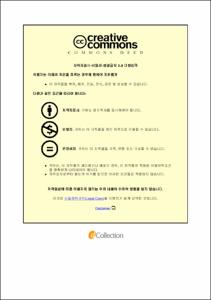COVID-19 팬데믹 상황에서 암환자의 우울, 바이러스 감염에 대한 불안, 의료기관 이용 불편감이 일상생활 기능에 미치는 영향
- Abstract
- 2019년 12월 발생한 새로운 형태의 coronavirus 감염병인 coronavirus disease 2019(COVID-19)는 전세계적인 팬데믹 상황을 유발하였고, 이는 암환자의 치료 환경에 많은 변화를 가져오면서 바이러스에 감염 예방과 적절한 암 치료에 대한 조율이 필요하였다. 국내에서 COVID-19 대유행 이후 암환자의 정신, 심리적 상태에 관한 연구가 거의 없었기 때문에 암 치료 과정과 예후에 영향을 미치는 암환자들의 일상생활 기능과 우울감, 바이러스 감염에 대한 불안, 의료기관 이용 불편감에 대해 알아보고자 하였다.
2020년 7월 15일부터 2020년 8월 15일까지 서울아산병원 암센터에 내원한 221명의 암환자들에게 온라인 설문을 실시하였다. 환자들이 자가보고식 설문을 시행하였고, 이를 통해 기본 인구학적 특성 및 암의 종류, 암의 병기, 현재 받고 있는 암 치료 종류, 수술력, 정신과적 과거력 등의 임상 지표를 확인하였다. 또한, 일상생활 기능, 우울, 바이러스 감염에 대한 불안, 불면, 회복탄력성, 수면에 대한 역기능적 사고, 암 대비 COVID-19에 대한 두려움에 대한 결과를 설문을 통해 파악하여 환자들의 정신, 심리적 요인들의 관계에 대한 통계 분석을 시행하였다.
연구 대상자들의 평균 연령은 50.1 ± 13.3세였으며, 76.0%가 여성이었다. 95명(43.0%)의 암환자에서 의료기관 이용 시 불편감을 호소하였고, 불편했던 가장 흔한 이유들은 “COVID-19 감염 위험 때문에 병원에 가기가 겁이 났다(66.3%)”, “반복적으로 COVID-19 설문 작성 및 선별검사를 실시하는 것이 불편했다(42.1%)”였다. 더불어 22명(10.0%)에서 진료가 지연되었으며, 그 중 15명(67%)에서 진료 지연은 2주 이내로 조정된 것으로 확인되었다.
Spearman’s correlation analysis 결과 암환자의 일상생활 기능과 유의미한 상관관계를 보인 요인은 우울감(Patient’s Health Questionnaire-9), 바이러스 감염에 대한 불안(Stress and Anxiety to Viral Epidemics-6), 불면(Insomnia Severity Index), 회복탄력성(Brief Resilience Scale), 수면에 대한 역기능적 사고(Cancer-related Dysfunctional Beliefs about Sleep), 암 대비 COVID-19에 대한 두려움(Fear of COVID-19 over Cancer)이었다. 로지스틱 회귀분석에서는 위 요인들 중 “높은 우울감”(adjusted OR: 1.12, 95%CI [1.02-1.23]), “바이러스 감염에 대한 높은 불안 반응” (adjusted OR: 1.21, 95%CI [1.08-1.35]), “낮은 회복탄력성” (adjusted OR: 0.87, 95%CI [0.76-1.00]), “암 대비 COVID-19에 대한 높은 두려움” (adjusted OR: 1.14, 95%CI [1.01-1.28])이 일상생활 기능 저하를 예측하는 요인으로 확인되었고, 추가적으로 “의료기관 이용 시 불편감 경험” (adjusted OR: 2.54, 95%CI [1.19-5.43]) 또한 일상생활 기능 저하를 유의미하게 예측하였다. 매개 효과 분석(mediation analysis) 결과, 바이러스 감염에 대한 불안 반응이 암환자의 일상생활 기능에 직접적인 영향을 미치고, 회복탄력성과 수면에 대한 역기능적 사고가 이 경로를 부분적으로 매개하는 것으로 확인되었다. 위 결과를 토대로 암환자의 일상생활 기능에는 환자의 인구학적, 임상적 특징보다는 우울, 바이러스 감염에 대한 불안, 의료기관 이용 불편감, 회복탄력성 등의 정신, 심리적 요소들이 중요하게 영향을 미친다는 것을 확인할 수 있었고, 암환자와 의료진 사이의 적극적인 소통과 정신과적 개입 및 개별적인 치료 방침 수립을 통해 암환자의 불안을 완화하여 적절한 암 치료를 이어나가는 것이 중요함을 확인하였다.
|In December 2019, coronavirus disease 2019(COVID-19) emerged and spread rapidly throughout the world. As a result, cancer care utilization rapidly changed, and therefore risk and benefit of active intervention in the cancer population must be considered individually. There is a paucity of literature on psychiatric status of cancer patients during the massive outbreak of COVID-19 in the Republic of Korea. We aimed to investigate cancer patients’ functional impairment in mental health as well as depression, anxiety to viral epidemic and disturbance in using healthcare services among them in the COVID-19 pandemic era.
We used an online survey with self-report questionnaires of 221 cancer patients who visited Cancer Institute of Asan Medical Center between July 2020 and August 2020. The information about demographic characteristics, cancer diagnosis, cancer stage, current cancer treatment, operation history, past psychiatric history and current mood problem was collected. Current mental health was assessed using the Work and Social Adjustment Scale(WSAS), Stress and Anxiety to Viral Epidemics - 6(SAVE-6), Patient Health Questionnaire - 9(PHQ-9), Insomnia Severity Index(ISI), Brief Resilience Scale(BRS), Cancer-related Dysfunctional Beliefs about Sleep scale(C-DBS) and Fear of COVID-19 over Cancer(FCC).
The mean age of the participants was 50.1 years with the standard deviation 13.3, and 76.0% were female. Among the 221 responders, 95(43.0%) reported disturbances in utilizing hospital care during the COVID-19 pandemic. The most common causes of disturbance were “worried about visiting the hospital because of the risk of COVID-19 infection” (n=63, 66.3%) and “repetitive COVID-19 swab screening tests and examination” (n=40, 42.1%). 22 patients(10.0%) reported that their OPD schedules were delayed, and 15 patients(67%) reported that periods of postponement were adjusted within 2 weeks.
According to Spearman’s correlation analysis, the SAVE-6, PHQ-9, ISI, BRS, C-DBS, FCC were all associated with WSAS with statistical significance. Logistic regression analysis revealed that “depression” (adjusted OR: 1.12, 95%CI [1.02-1.23]), “anxiety response to viral epidemic” (adjusted OR: 1.21, 95%CI [1.08-1.35]), “low resilience” (adjusted OR: 0.87, 95%CI [0.76-1.00]), “fear of COVID-19 over cancer” (adjusted OR: 1.14, 95%CI [1.01-1.28]) and “disturbance in healthcare utility” (adjusted OR: 2.54, 95%CI [1.19-5.43]) were significant predictors of cancer patient’s functional impairment. Mediation analysis showed that resilience (z=2.35, p=0.02) and cancer-related dysfunctional beliefs about sleep (z=1.93, p=0.053) partially mediated the effects of anxiety on functional impairment. As a result, anxiety response to viral epidemic significantly influences cancer patients’ functional impairment in COVID-19 pandemic, therefore active communication and individualized treatment plan might be important to relieve patients’ anxiety and properly manage them.
- Issued Date
- 2021
- Awarded Date
- 2021-08
- Type
- Dissertation
- Alternative Author(s)
- Kyumin Kim
- Affiliation
- 울산대학교
- Department
- 일반대학원 의학과
- Advisor
- 정석훈
- Degree
- Master
- Publisher
- 울산대학교 일반대학원 의학과
- Language
- kor
- Rights
- 울산대학교 논문은 저작권에 의해 보호받습니다.
- Appears in Collections:
- Medicine > 1. Theses (Master)
- 파일 목록
-
-
Download
 200000502095.pdf
기타 데이터 / 563.28 kB / Adobe PDF
200000502095.pdf
기타 데이터 / 563.28 kB / Adobe PDF
-
Items in Repository are protected by copyright, with all rights reserved, unless otherwise indicated.